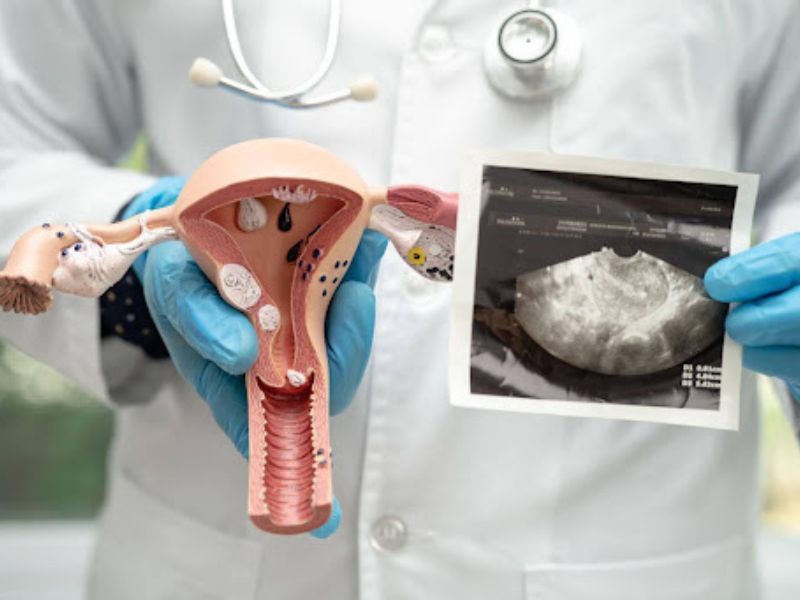
The Link Between Menopause and Cervical Cancer: What You Should Be Aware Of!
Cervical Cancer Risk and Menopause: What You Need to Know
Menopause is a natural phase in a woman’s life, typically occurring between 45 and 55, marking the end of menstrual cycles. While menopause itself is not an illness, it can bring about significant changes in a woman’s body and health. One area of concern for women going through or post-menopause is the risk of cervical cancer. Understanding the relationship between menopause and cervical cancer, the signs and symptoms, and how to manage and mitigate risks is crucial for women’s health.
The Connection Between Menopause and Cervical Cancer
Cervical cancer occurs when abnormal cells on the cervix grow out of control. The cervix is the lower part of the uterus that opens into the vagina. Menopause does not cause cervical cancer, but the risk of cervical cancer after menopause can increase due to several factors, including a history of human papillomavirus (HPV) infection, smoking, and a weakened immune system.
Risk Factors of Cervical Cancer After Menopause
1. Age and HPV Infection
Women who have been infected with HPV, a common sexually transmitted infection, are at a higher risk of developing cervical cancer. The risk of cervical cancer after menopause can increase as the immune system weakens with age, making it harder to fight off HPV infections.
2. Smoking
Smoking is a significant risk factor for cervical cancer. The chemicals in tobacco can damage the DNA of cervix cells and contribute to the development of cancerous cells.

3. Weakened Immune System
Conditions or medications that suppress the immune system can increase the risk of cervical cancer. A strong immune system is essential for fighting infections and abnormal cell growth.
4. Lack of Regular Screening
Regular Pap smears and HPV testing are crucial for early detection of cervical cancer. Post-menopausal women might neglect regular screening, assuming they are no longer at risk, which can lead to late detection.
Signs and Symptoms of Cervical Cancer After Menopause
Recognizing the signs and symptoms of cervical cancer after menopause is vital for early diagnosis and treatment. Some common signs include:
- Unusual Vaginal Bleeding: This is often the first sign of cervical cancer. Post-menopausal women who experience any vaginal bleeding should consult their healthcare provider immediately.
- Pelvic Pain: Persistent pain in the pelvis or lower back can be a symptom of cervical cancer.
- Pain During Intercourse: Painful intercourse can be a sign of changes in the cervix due to cancer.
- Unusual Discharge: Watery, bloody, or foul-smelling vaginal discharge can indicate cervical cancer.
Managing Menopause Symptoms During and After Cervical Cancer Treatment
Cervical cancer treatments, such as surgery, radiation, and chemotherapy, can induce menopause in women who have not yet reached this stage naturally. These treatments can lead to a sudden onset of menopause symptoms, including hot flashes, night sweats, and vaginal dryness. Managing these symptoms is crucial for maintaining quality of life.
- Hormone Replacement Therapy (HRT): HRT can help alleviate menopause symptoms, but it’s important to discuss the risks and benefits with a healthcare provider, especially for women who have had cervical cancer.
- Vaginal Estrogen: Low-dose vaginal estrogen can help with vaginal dryness and discomfort without significantly increasing systemic estrogen levels.
- Lifestyle Changes: Regular exercise, a healthy diet, and quitting smoking can help manage menopause symptoms and reduce the risk of cervical cancer recurrence.

Importance of Regular Screening and Vaccination
Regular cervical screening and HPV vaccination are critical components of cervical cancer prevention. Women should continue to have regular Pap smears and HPV tests even after menopause. The HPV vaccine is highly effective in preventing HPV infections and is recommended for younger women and men, but older women who haven’t been vaccinated can still benefit.
Emotional and Psychological Support
The diagnosis of cervical cancer and the onset of menopause can be emotionally challenging. Support from family, friends, and healthcare providers is essential. Counseling and support groups can provide emotional support and coping strategies for women dealing with the dual challenges of menopause and cervical cancer.
Lifestyle and Wellness Tips for Post-Menopausal Women
Maintaining a healthy lifestyle is vital for reducing the risk of cervical cancer and managing menopause symptoms. Here are some wellness tips for post-menopausal women:
1. Healthy Diet
A balanced diet of fruits, vegetables, whole grains, and lean proteins can support overall health. Foods high in antioxidants can help protect cells from damage, potentially reducing the risk of cancer.
2. Regular Exercise
Physical activity can help manage weight, reduce stress, and improve overall well-being. Aim for at least 30 minutes of moderate exercise most days of the week.
3. Quit Smoking
Smoking cessation is crucial for reducing the risk of cervical cancer and other health issues. Seek support from healthcare providers and smoking cessation programs if needed.
4. Limit Alcohol
Excessive alcohol consumption can increase cancer risk. Limit intake to one drink per day for women.

5. Stress Management
Practice stress-reducing activities such as yoga, meditation, and deep breathing exercises to improve mental and emotional health.
6. Regular Check-Ups
Regular visits to healthcare providers for check-ups and screenings can help detect potential health issues early.
Navigating Treatment and Recovery
If diagnosed with cervical cancer, navigating treatment and recovery can be daunting. Here are some steps to help manage the journey:
1. Understanding Treatment Options
Learn about the various treatment options available, including surgery, radiation therapy, and chemotherapy. Discuss the benefits and risks of each option with your healthcare provider.
2. Seeking Second Opinions
Don’t hesitate to seek a second opinion to explore all possible treatment avenues.
3. Creating a Support Network
Lean on family, friends, and support groups for emotional and practical support during treatment and recovery.

4. Managing Side Effects
Discuss potential side effects of treatments with your healthcare provider and explore ways to manage them effectively.
5. Post-Treatment Care
Follow-up care is crucial to monitor for any recurrence of cancer and manage any long-term side effects of treatment.
The Role of Healthcare Providers
Healthcare providers play a critical role in managing menopause and cervical cancer. Building a strong relationship with your healthcare team can help ensure comprehensive care. Here’s how they can support you:
1. Regular Screenings
Ensure you continue regular cervical screenings and HPV tests. Your healthcare provider can guide you on the appropriate frequency based on your health history.
2. Personalized Treatment Plans
If diagnosed with cervical cancer, your healthcare provider will develop a personalized treatment plan tailored to your specific needs and preferences.

3. Symptom Management
Work with your healthcare provider to manage menopause symptoms and any side effects from cancer treatment.
4. Emotional Support
Healthcare providers can offer counseling and refer you to support groups to help cope with the emotional aspects of menopause and cancer.
5. Educational Resources
Access educational materials and resources from your healthcare provider to stay informed about menopause and cervical cancer.
The Importance of Awareness and Advocacy
Raising awareness about the risks and signs of cervical cancer after menopause is crucial for early detection and prevention. Advocacy efforts can help spread important information and support research and policy changes. Here’s how you can contribute:
1. Share Information
Share information about cervical cancer and menopause with friends, family, and community members to increase awareness.
2. Participate in Fundraising Events
Participate in events that raise funds for cervical cancer research and support services.
3. Encourage Regular Screenings
Encourage women in your community to maintain regular cervical screenings and HPV vaccinations.
Key Takeaway
Cervical cancer after menopause is a significant health concern that requires attention and proactive management. Recognizing the signs and symptoms of cervical cancer after menopause, understanding the risk factors, and maintaining regular screenings can lead to early detection and better outcomes. Managing menopause symptoms during and after cervical cancer treatment is crucial for improving the quality of life. By staying informed and vigilant, women can take control of their health and reduce the risk of cervical cancer.
You don’t have to navigate this journey alone. Join the Miror Community today and connect with a community dedicated to supporting your health and well-being.
Citations
- https://www.moffitt.org/taking-care-of-your-health/taking-care-of-your-health-story-archive/gynecologic-cancers-and-menopause/
- https://go.gale.com/ps/i.do?aty=open-web-entry&id=GALE%7CA516196756&issn=22784748&it=r&linkaccess=abs&p=AONE&sid=googleScholar&sw=w&userGroupName=anon~4b865e1a&v=2.1
- https://www.jostrust.org.uk/information/living-with-cervical-cancer/menopause
- https://www.jsafoms.com/doi/pdf/10.5005/jp-journals-10032-1017

Sruthakeerthi Shenoy





